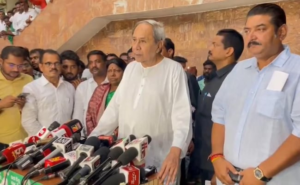

Delhi High Court’s observation was prompted by rising cases of deepfakes (File)
New Delhi:
In the era of deepfakes, photographs placed by a spouse alleging adultery by the other partner would have to be proved by way of evidence before the family court, the Delhi High Court said.
The court’s observation came while dealing with a man’s contention that his estranged wife was living in adultery.
The high court dismissed the man’s appeal challenging a family court order directing him to pay Rs 75,000 as maintenance to his wife and minor daughter.
As the counsel for the husband drew the court’s attention to certain photographs of his wife, a bench of justices Rajiv Shakdher and Amit Bansal said, “It is not clear as to whether the respondent/wife is the person in the photographs, as alluded to by the counsel for the appellant/husband.”
“We may take judicial notice of the fact that we are living in the era of deepfakes and, therefore, this is an aspect that the appellant/husband, perhaps, would have to prove by way of evidence before the family court,” the bench said.
Deepfake technology allows for the creation of realistic videos, audio recordings, and images that can manipulate and mislead viewers by superimposing the likeness of one person onto another, altering their words and actions, thereby presenting a false narrative or spreading misinformation.
Asked by the bench whether this averment of adultery found mention in the man’s reply to his wife’s plea under the Hindu Marriage Act, his counsel conceded that there was no mention of it.
The bench noted that since the petition instituted by the man for divorce is pending an adjudication, the court may give opportunity to the parties to place their evidence on record in support of their respective cases if this issue is pressed.
“Notably, this aspect, which is vehemently pressed before us, almost as a measure of desperation to wriggle out of the obligation cast in the impugned judgment, finds no mention in the impugned judgment (of family court),” the high court said.
The man’s counsel claimed that this aspect was raised before the family court, But, it was ignored while rendering the judgment.
“If this was the situation, the best course open to the appellant/husband was to move an application for review before the family court. However, no such measure has been taken recourse to by the husband,” it said.
The man, an architect, has challenged a family court’s April 15 order, directing him to pay Rs 75,000 as monthly maintenance to his estranged wife and child.
The couple had married in 2018 and has a five-year-old daughter.
The court was told that the wife has a post-graduate degree but is currently unemployed and living with her parents since her separation.
While the woman had sought Rs 2 lakh as monthly maintenance, the family court ordered the man to pay Rs 75,000.
(Except for the headline, this story has not been edited by NDTV staff and is published from a syndicated feed.)



